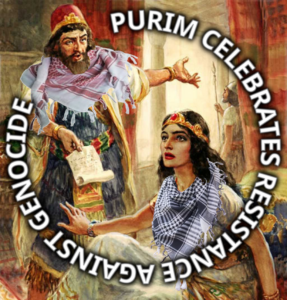by Andrej Ivanovic
One of the most persistent myths about Zionism is the illusion that it once embodied genuine socialist ideals. Labour Zionism, falsely labeled “progressive” or “socialist,” was, in reality, fundamentally colonialist, imperialist, and racist. Its appropriation of socialist symbolism and rhetoric served only to conceal its reactionary and oppressive core, directly contradicting the essence of socialism: international solidarity with all oppressed peoples.
Socialism and Anti-Colonial Solidarity vs. Zionist Colonialism
Socialism, from its origins in Marxist thought, stands firmly against colonialism, imperialism, and all forms of racial oppression. Lenin explicitly argued for the unconditional right to self-determination, sharply condemning annexation and colonial exploitation. Genuine socialist movements, whether the Bolsheviks or anarchists in revolutionary Spain, supported oppressed nations against imperial powers.
Labour Zionism, from its inception, violated these fundamental socialist principles. Under leaders like David Ben-Gurion and Golda Meir, Labour Zionism actively collaborated with imperial powers—initially the British, then the Americans—to facilitate the settler-colonial project in Palestine. The Zionist narrative of “Hebrew Labour” explicitly promoted Jewish racial exclusivity, systematically excluding Palestinian Arabs to maintain colonial control, reflecting Lenin’s condemnation of imperial annexation.
Pseudo-Socialist Symbolism: Zionism’s Commonality with Fascism
Labour Zionism’s misuse of socialist iconography was not unique; it shared this trait with classic fascist movements. Mussolini’s Italy and Nazi Germany both cynically appropriated socialist symbolism to gain popular legitimacy, all while perpetuating racist and nationalist policies. Similarly, Zionist leaders employed socialist imagery—kibbutzim, red flags, and collective farming—to mask ethnic cleansing, apartheid, and racist hierarchies.
This pseudo-socialism did not genuinely empower workers but reinforced racial stratification and colonial privilege. The Histadrut, promoted as a progressive labour union, excluded Palestinian workers from its founding and deliberately undermined solidarity across ethnic lines. Its primary goal was to solidify colonial dominance rather than dismantle capitalist oppression.
Systemic Racism within Labour Zionism
Labour Zionism was explicitly racist—not only toward Palestinians but also toward non-white Jewish communities. Mizrahi Jews from Middle Eastern, North African, and Central Asian backgrounds were subjected to severe discrimination and marginalization by the Ashkenazi-dominated Labour establishment. Forced into impoverished “ma’abarot” camps and stigmatized as inferior, Mizrahi Jews’ struggles against systemic racism culminated in movements like the Israeli Black Panthers, which Labour Zionist governments violently suppressed.
Similarly, Ethiopian Jews faced harsh racism upon migration to Israel. Labour Zionist institutions manipulated their immigration for propaganda purposes but systematically excluded them socially and economically, even resorting to forced sterilization policies—a brutal expression of racist eugenics.
Leninist Perspectives on Zionist Colonialism
Lenin’s explicit condemnation of Zionism as reactionary, combined with his emphasis on supporting unconditional self-determination and anti-imperialist struggles, offers a clear socialist critique. Lenin argued that socialism must stand unequivocally against colonial oppression, clearly positioning Zionism as an enemy of genuine socialist ideals. According to Lenin, Zionist settlements were fundamentally imperialist annexations, incompatible with socialism’s core internationalist commitments.
Conclusion: Labour Zionism—A Betrayal of Socialism
Labour Zionism, far from a socialist movement, was fundamentally colonial, imperialist, and deeply racist. Its distorted socialist rhetoric only served to legitimize settler colonialism, racial hierarchy, and class exploitation. Genuine socialism, grounded in internationalist solidarity, stands in unconditional opposition to Zionism. Today, recognizing the anti-socialist and reactionary essence of Labour Zionism means reaffirming solidarity with Palestinian liberation and all struggles against imperialist oppression.

